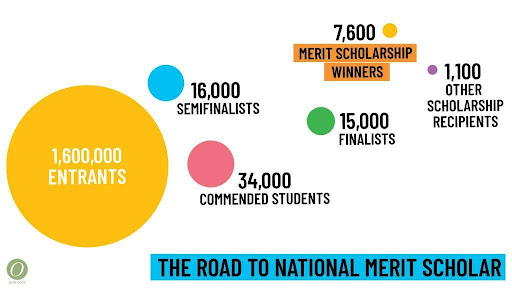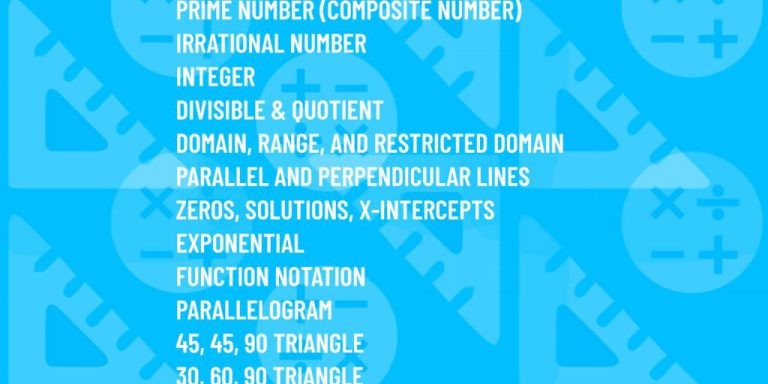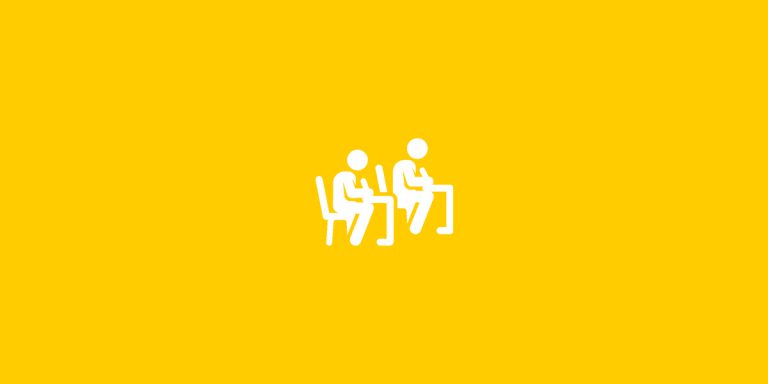Should you study for the PSAT? It’s just a practice test – right?
The PSAT 10 and PSAT/NMSQT® are both practice SAT tests. But how you approach these two tests depends on your personal goals.
About the PSAT 10 and PSAT/NMSQT®
Both the PSATs are a practice SAT test. They are very similar to the SAT in content and format, but the content is slightly easier than that of the SAT. Also, the PSATs are graded on a scale of 320 to 1520, while the SAT is graded on a 400-1600 point scale.
(For a full run-down of the PSAT’s structure, timing, and more information about the test, check out this post.)
PSAT vs SAT Differences
The PSAT 10 and PSAT/NMSQT® are slightly easier than the SAT to account for the fact that you are taking the test sooner than you would (probably) take the real SAT. The math section will have fewer Algebra 2 topics and the reading passages may be a little less dense than what you would find on the real SAT. But just like the real SAT, the PSATs test your ability to recognize problems in an unfamiliar environment and to recall how to solve them.
The PSAT 10, which is for sophomores only, is purely a practice test, although if you do well and fit certain demographic markers, it can help you qualify for National Recognition programs for minority, first-generation, or rural students. On the other hand, the PSAT/NMSQT®, which is for students in their third year of high school, is a practice test for the SAT but it is also a means of entry into the National Merit® Scholarship Program.
PSAT Structure
Both PSATs last 2 hours, 14 minutes.
The Reading and Writing section is 64 min and has 54 questions divided into two modules.
The Math section is 70 minutes and has 44 questions, also divided into two modules. Students are permitted to use a calculator on the entire Math section, the Desmos calculator is provided digitally.
Is the PSAT Important?
The PSAT 10 is a great way to get your baseline SAT score and a helpful jumping-off point for future studying. It’s also a way to experience the testing environment without the added pressure of feeling like you need to get a certain score. Beyond this, the PSAT 10 doesn’t have much significance. Colleges will not see your PSAT 10 or PSAT/NMSQT® score.
Colleges will not see your PSAT 10 or PSAT/NMSQT® score.
Now the PSAT/NMSQT® has a bit more weight. Sure, you are also getting an accurate baseline SAT score and experiencing the testing environment. However, there’s some added pressure if you’d like to be a competitive candidate for the National Merit Scholarship program. The score you make on the PSAT/NMSQT® will determine if you are able to move forward in the scholarship process.
The score you make on the PSAT/NMSQT® will determine if you are able to move forward in the scholarship process.
Becoming a National Merit Scholar starts with your PSAT score, but does not end there. Your score just qualifies you for entry into the competition. From there, a series of rounds reduces the 1.6 million students who entered down to the 7,500 students that earn the distinction “National Merit Scholar.” This award is presented in the spring of your senior year of high school.

Do You Need to Study for the PSAT?
Back to our original question – should you study for the PSAT?
Studying for the PSAT 10
If you’re taking the PSAT 10 it can be helpful to look over a practice test so you can get a sense of how the sections are formatted and how the questions are asked. You could read a passage and answer a few questions in the Reading or Writing and Language sections, or try a few Math questions.
If you’re taking the PSAT 10 it can be helpful to look over a practice test. The overall idea is really to familiarize yourself with the test more than you are actually studying for the test.
The overall idea is really to familiarize yourself with the test more than you are actually studying for the test. If you are a nervous test-taker or are worried about the pacing, then go ahead and take a practice test. Just remember that this test is a starting point. You can always do some prep before you take the real SAT!
Studying for the PSAT/NMSQT®
Now how much you should or shouldn’t study for the PSAT/NMSQT® really depends on 2 things:
- Do you think you have a chance to earn a high enough score to be eligible for National Merit Semi-Finalist status?
- Are you taking Algebra 2, an equivalent, or higher math class your junior year?
If you answered YES to either question, then YES you should study for the PSAT/NMSQT®.
The first question makes sense: if you think you could qualify for National Merit Scholar, then you should definitely do some prep before you take the test. The second question needs a bit more context.
We’ve explained before that a good rule of thumb is if you are taking Algebra 2 in your junior year, then the spring of your junior year is the best time to take the SAT and/or ACT for the first time.
If, on the other hand, you took Algebra 2 in your sophomore year, then the winter of your junior year is the best time to take the SAT and/or ACT for the first time.
So, if you are planning to take the SAT and/or ACT for the first time in the winter, then your prep for the SAT and/or ACT should be well underway before the time of the PSAT/NMSQT®. So it is not so much that you are studying for the PSAT/NMSQT® as you are for your upcoming winter SAT and/or ACT. Plus, the PSAT/NMSQT® will serve as a great indicator of how well your prep is coming along!
The PSAT is Just That – Practice
The takeaway here is that PSAT is a practice SAT test.
The PSAT 10 offers a baseline SAT score and a jumping-off point for future studying & thus you want to do your best but it doesn’t require too much studying.
The PSAT/NMSQT®, however, could qualify you for the National Merit Scholarship program and serve as a great indicator of how well prepared you are for a possible winter SAT and/or ACT. You may need to take it seriously depending on your goals.
The PSAT 10 doesn’t require studying. The PSAT/NMSQT®, however, could qualify you for the National Merit Scholarship program and serve as a great indicator of how well prepared you are for a possible winter SAT and/or ACT. You may need to take it seriously depending on your goals.
Wherever you are in the journey, the PSAT is not something to fret about but rather a tool to offer some insight into how you’ll do on the SAT.
Studying for the SAT? Get all the practice questions and study materials you’ll need to own the test in our online SAT study course. It’s also animated and self-paced to help you stay engaged at your own pace. Learn more and enroll at www.olive-book.com.













